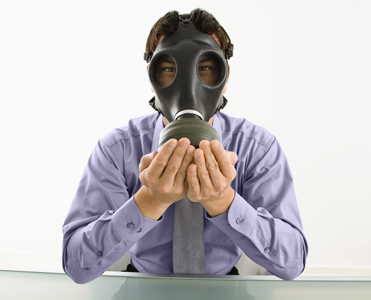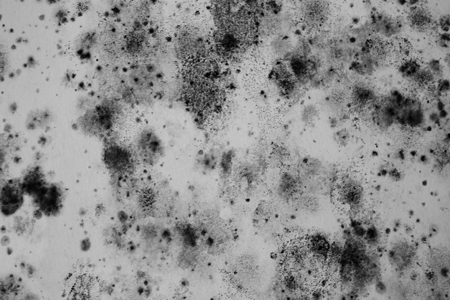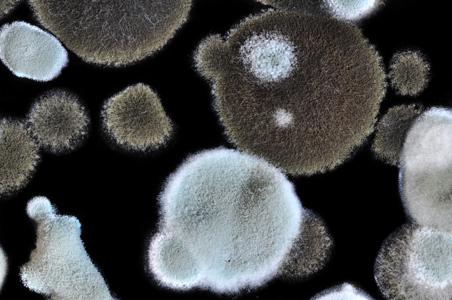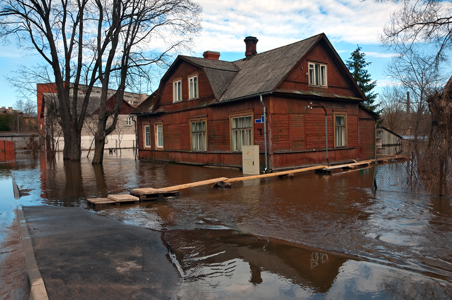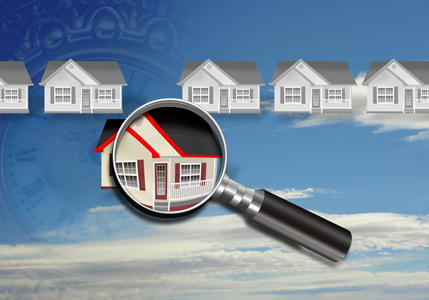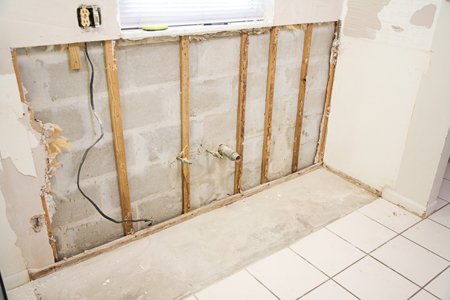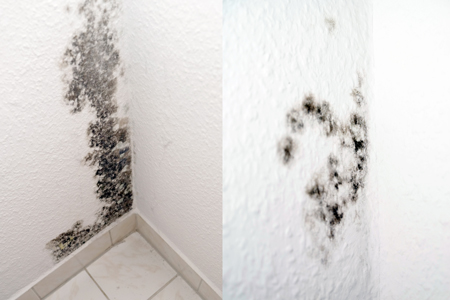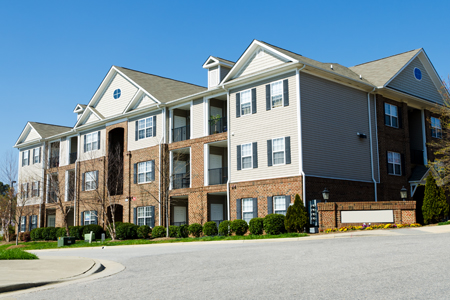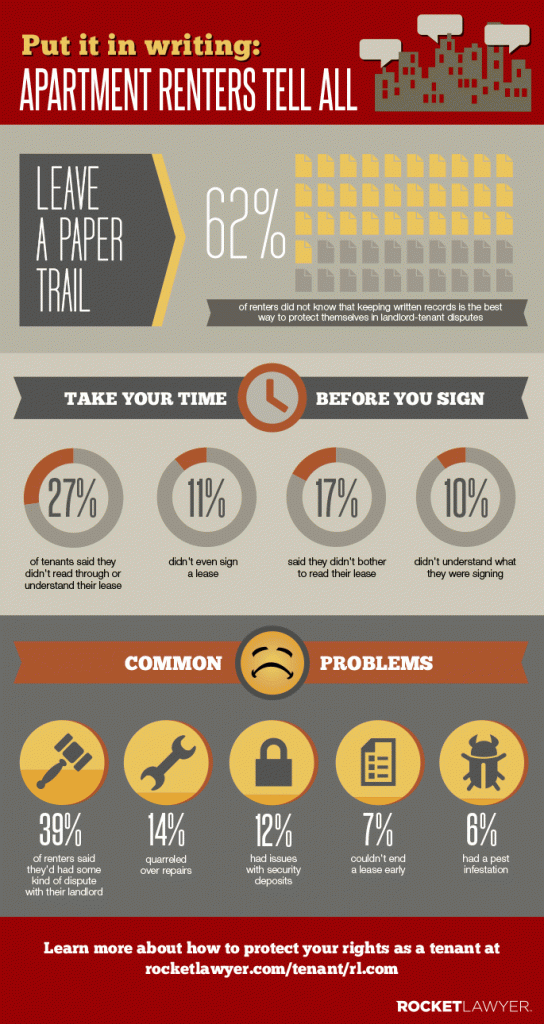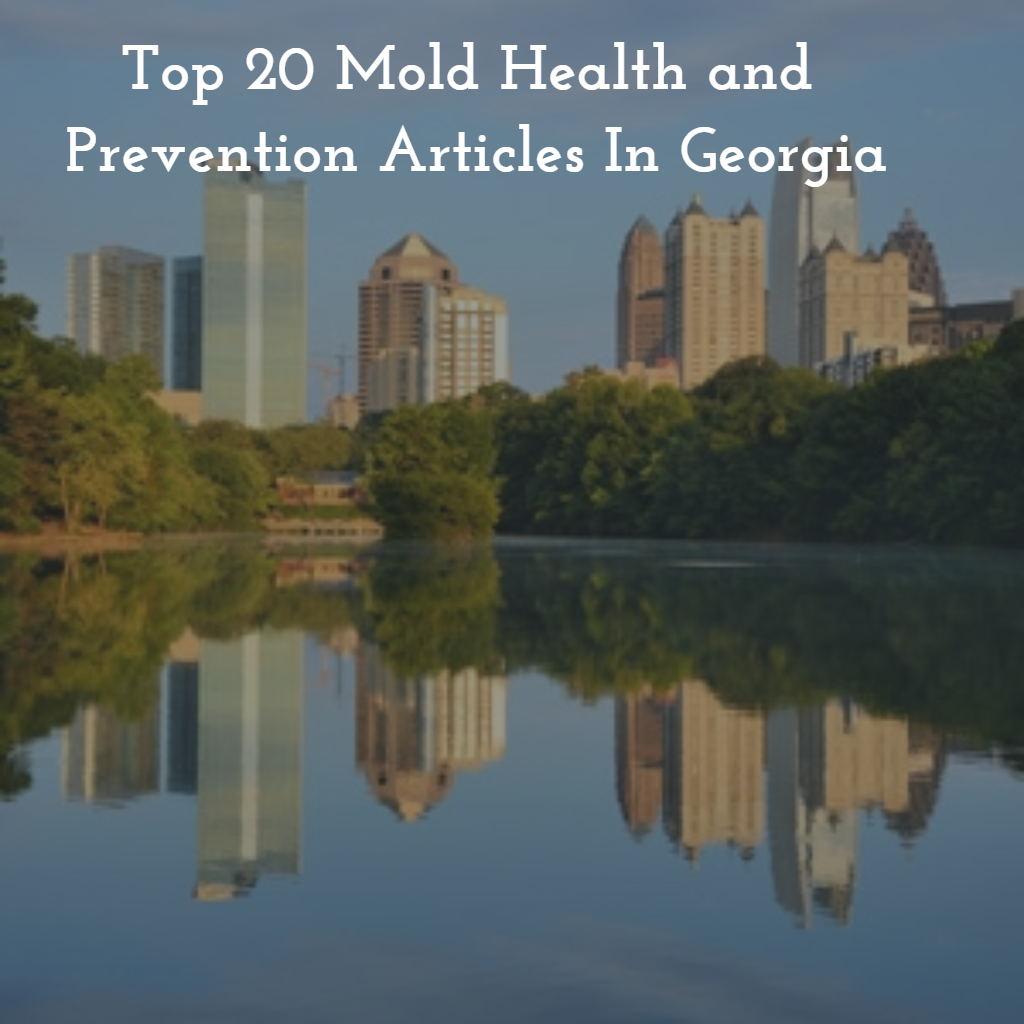
by Eric Brown | Nov 18, 2016 | 37 Symptoms Associated With Mold Illness, Can Mold Kill?, Chronic Fatigue Syndrome (CFS), Chronic Inflammatory Response Syndrome (CIRS), Health, How Toxic Is Mold?, Indoor Air Quality, Mold and Asthma, Mold and Chronic Fatigue Syndrome, Mold and Depression, Mold and Genes, Mold and Multiple Sclerosis, Mold and Parkinson's Disease, Mold and Pregnant Women, Mold and Sinusitis, Mold Facts, Mold Information, Mold Remediation, Mold Removal, Questions and Answers
What Impact Do Genes Have On Mold Illness?

What Impact Do Genes Have On Mold Illness?
Mold B Gone specializes in helping mold sensitized individuals.
One of the questions we are often asked is why do some people get sick from mold and other’s do not?
One of the biggest challenges faced by people sick from mold is the fact that doctors, friends, and other family members dismiss their symptoms simply because they do not get sick when exposed to mold.
Many victims of mold sickness are labelled as hypochondriacs and are accused of not being sick at all.
This is tragic because many people that get sick have no control over their sickness because their bodies have a genetic pre-disposition to mold illness.
The other major problem with mold illness is the fact that there are so many symptoms, 37, associated with it, meaning it is difficult for physicians to pinpoint the cause.
This article explains how your genes impact mold illness and what you can do if you suspect that you suffer from Chronic Inflammatory Response Syndrome (CIRS).
Legal Challenges Faced By Mold Sensitized Individuals

Legal Challenges Faced By Mold Sensitized Individuals
Sickness from mold has been around for decades.
Victims of mold have tried to plea their cases in the courts seeking compensation for the health damages caused by poorly maintained homes and buildings that had water damage and mold.
Unfortunately, many of the plaintiffs lost their battle because the courts did not believe that mold actually makes people sick.
Despite this, data from thousands of contractors working with occupants of water-damaged buildings documented the health challenges that many mold sensitized individuals faced.
According to Erik Johnson, a mold expert and survivor, it was not until the 1990s, that the World Health Organization, acknowledged that “Sick Building Syndrome” could be caused by toxic mold.
Moving forward, finally, it seems that there is greater recognition that mold is in fact the cause of sickness for many. In 2015, the MOLDY documentary featured health professionals and people who have suffered mental and physical health issues after living in moldy homes. This was a ground breaking documentary because it brought the issue of mold and sickness to a much broader audience, thereby creating significant awareness of this issue.
In a presentation at the PLR Expo in Toronto, Canada, in 2015, CEO of Wonder Makers Environmental, Michael Pinto presented “12 Future Trends In The Restoration Industry“.
One of the most notable trends he cites is a “A Tighter Connection Between Medicine and Environment“.
Pinto cites new diagnosing techniques to identify the illness, Chronic Inflammatory Response Syndrome (CIRS) (detailed below), which legitimizes the tie between Water Damaged Buildings (WDB) and sickness. Research has identified a genetic component to this condition (explained below), a screening test (VCS), and most importantly, a treatment regimen.
Other trends Pinto believes demonstrate the important ties between medicine and the environment include the Environmental Relative Moldiness Index (ERMI) which is a scientific test that analyzes dust samples for 36 mold species. This test provides base information to identify CIRS because 26 of the mold species are considered to be water damage indicators.
This test is important because one sample can be analyzed to identify the extent of water damage in the building that could make someone susceptible to CIRS sick. Importantly, this test will provide an ERMI score, ie. a HERTSMI-2 score that can be given to physicians and will help them assess whether a building will make their patient sick.
Because of the growing medical awareness and the fact that there are now medical tests and drugs to diagnose and treat mold illness, Pinto believes that one of the other consequences of this acknowledgement will be a “More Active Justice System” where plaintiffs will now be able to get compensation because they now have science to back up their claims.
25% Of People Have A Genetic Predisposition to Mold Illness

25% Of People Have A Genetic Predisposition to Mold Illness
The most interesting aspect of the research on the effect that Sick Building Syndrome has on patients pertains to genetics. One of the biggest problems with mold sickness is that it impacts everyone differently. Some may experience minor allergies, and other health conditions like asthma and chronic sinusitis, while other mold sensitized patients may suffer severe illnesses.
One physician documented the health symptoms of 227 patients that lived in water damaged buildings during a three year period. What this doctor found was that 98% of his patients had one of the gene types where their immune systems were not able to effectively deal with contaminants from water damaged buildings.
As stated by Pinto:
“In layman’s terms, two different genes have been isolated, which keep some people’s immune systems from functioning properly when they have been exposed to contaminants from water-damaged buildings. Instead of properly identifying and eliminating the foreign invader, those body defense mechanisms increase the problem. When viewed with a basic understanding of genetic distributions, this research made it clear that up to a quarter of the population (25%) is at increased risk from exposure to water-damaged buildings.“
This research is very significant because it demonstrates that up to 25% of the population has a genetic pre-disposition that makes them more susceptible to mold illness and the condition known as Chronic Inflammatory Response Syndrome (CIRS).
Because of this research, the scientific community and legal system is now taking much greater notice because diagnostic tests, lab tests and treatment tools are being developed to help these patients.
37 Health Conditions Associated With CIRS!

37 Health Conditions Associated With CIRS!
Listed below are the 37 symptoms associated with CIRS.
- Fatigue
- Weakness
- Aches
- Muscle Cramps
- Unusual Pain
- Ice Pick Pain
- Headache
- Light Sensitivity
- Red Eyes
- Blurred Vision
- Tearing
- Sinus Problems
- Cough
- Shortness of Breath
- Abdominal Pain
- Diarrhea
- Joint Pain
- Morning Stiffness
- Memory Issues
- Focus/Concentration Issues
- Word Recollection Issues
- Decreased Learning of New Knowledge
- Confusion
- Disorientation
- Skin Sensitivity
- Mood Swings
- Appetite Swings
- Sweats (especially night sweats)
- Temperature Regulation or Dysregulation Problems
- Excessive Thirst
- Increased Urination
- Static Shocks
- Numbness
- Tingling
- Vertigo
- Metallic Taste
- Tremors
According to Dr. Ritchie Shoemaker, CIRS is:
“an accute and chronic, systemic inflammatory response syndrome acquired following exposure to the interior environment of a water-damaged building with resident toxigenic organisms, including, but not limited to fungi, bacteria, actinomycetes and mycobacteria as well as inflammagens such as endotoxins, beta glucans, hemolysins, proteinases, mannans, c-type lectins and possibly spirocyclic drimanes, plus volatile ogranic compounds.“
For 75% of the population, when exposed to biotoxins caused by mold, the individuals immune system responds by binding with the invading poison that allows its cells to filter the biotoxins through the liver, kidneys, and other organs. In contrast, 25% of the population that have the genetic susceptibility to mold illness get sick because their bodies immune system does not bind to the biotoxin, meaning it is not eliminated and therefore continues to circulate, causing the many symptoms, documented below.
The “C” in CIRS refers to the term “Chronic” because individuals that are exposed to poisons from mold are unable to eliminate the toxins from their body, resulting in on-going and escalating sickness, particularly if the person is continually exposed to mold. This is the primary reason that the first priority of medical practitioners treating mold sensitized patients is to begin the detox process which also must coincide with movement away from the building that is constantly exposing the person to the toxins.
The “I” in CIRS refers to the term “Inflammatory” because the constant exposure to the toxins creates a cycle of sickness, meaning the individual’s immune system is constantly trying to fight the toxins, leading to inflammation.
The “R” in CIRS refers to “Response” because the human body is designed to respond to invading toxins. In the case of patients suffering from mold sickness, the immune system is constantly trying to fight the toxins causing a stress on the complete immune system of the individual, which in turn leads to other health conditions.
As stated by Pinto, the “S” in CIRS refers to “Syndrome” because:
“The symptoms are a result of many factors, including external exposures and internal responses. The contaminants from water-damaged buildings should trigger the activation of an immune response, but some people’s genetic structure does not allow the proper recognition of the biotoxin. Since this combination of circumstances inhibits the clearance of the poison from the body, these harmful substances continue to circulate and create continual damage. With such individuals there is no linear dose/response relationship, meaning that even trivial exposures can create severe problems.“
Is CIRS Life Threatening?

Is CIRS Life Threatening?
The major problem that individuals with CIRS face is their bodies immune systems become severely compromised and weakened from the vicious cycle of invading poison, immune response, and inflammation.
The end result is many of their bodies systems are damaged leading to a wide range of health conditions, some life threatening.
For this reason, many mold survivors have reported that they have abandoned the primary residence that initially made them sick; instead, seeking shelter in trailer parks, and very dry areas, with desert like conditions where moisture is limited. These drastic measures were taken by these individuals because their bodies have become so sensitized to mold that even minor exposure triggers severe reactions.
Fortunately, the continued research on mold sickness is creating hope because treatments have developed that help individuals detox and eliminate the poisons, followed by rebuilding the immune system so that it regains strength.
Do You Suspect You Have A Mold Illness?

Do You Suspect You Have A Mold Illness?
The core problem with CIRS is the fact that there are so many symptoms associated with the condition.
Are you constantly seeking medical attention?
Have you been feeling sick for an extended period of time?
If you think you may be sick because of mold, review the mold sensitized interviews to gather more information.
The next step is to verify that you actually have a bio-toxin illness caused by mold, meaning you should get your home tested for mold.
Then seek out an environmental physician who can properly diagnose, determine if you have a genetic pre-disposition to mold illness, and most importantly begin treatment so your body can properly detox.
If you are diagnosed with mold illness, your physician may request that you leave your home for awhile during the detox process.
During this period, we advise that you get all the mold removed from your home, your contents cleaned, and a thorough cleaning of your HVAC system to prevent the spread of mold spores after the remediation is complete.
Got Mold Questions?
Questions? Need help? Mold B Gone looks forward to serving you, with the added benefit that we understand the needs of mold sensitized individuals. Call 678-697-6267 or send us an e-mail!

by Eric Brown | Jul 22, 2016 | Bleach and Mold, Can Black Mold Poison You?, Can Mold Kill?, Chronic Fatigue Syndrome (CFS), Chronic Inflammatory Response Syndrome (CIRS), Dead Mold Spores, Health, How Toxic Is Mold?, Indoor Air Quality, Killing Mold, Mold and Asthma, Mold and Chronic Fatigue Syndrome, Mold and Depression, Mold and Infants, Mold and Multiple Sclerosis, Mold and Parkinson's Disease, Mold and Pregnant Women, Mold and Sids, Mold and Sinusitis, Mold Facts, Mold Information, Mold Remediation, Mold Removal, Mold Sensitized Customer Testimonial, Mold Sensitized Success Story, Questions and Answers, Stachybotrys Black Mold, Toxic Mold
Top Fifteen Frequently Asked Questions About Mold and Health

Top Fifteen Frequently Asked Questions About Mold and Health
Mold B Gone has been helping residents in the Atlanta metropolitan area and surrounding Georgia states with mold removal since 2009.
During this period we have encountered many questions about mold and the impact it can have on health.
Listed below are the top 15 questions we have encountered with links to articles that provide detailed answers.
#1 Why is Stachybotrys Mold A Health Concern?
You often hear about black mold in the media. Why is it such a big deal? Can black mold actually make you sick? This article explains why!
#2 Why Do Some People Get Sick From Mold And Others Do Not?
The challenge mold poses is that it impacts everyone differently. This article explains why!
#3 What Is The Link Between Mold and Chronic Fatigue Syndrome?
Considering the similarity of symptoms between those suffering from ME/CFS and those suffering from CIRS, it is likely that many individuals diagnosed with ME/CFS may have been exposed to mycotoxins produced by mold growth. Learn more!
#4 Is Mold Sickness A Hidden Epidemic?
Since so many health professionals are not aware of the health problems mold causes, many mold advocates believe that it is a hidden epidemic. In short, you could be sick from mold and not even know it. Learn more!
#5 Does Mold Cause Sinus Infections?
Chronic sinusitis costs the health care system more than 8 billion dollars each year. The cause is most likely mold, meaning most of the treatments prescribed are not effective. Learn more!
#6 Could Some People Diagnosed With Multiple Sclerosis Actually Be Suffering From Mold Sickness?
Dr. Rick Sponaugle of the Florida Detox & Wellness Institute strongly believes that environmental factors, such as mold, could be a cause of MS because mold toxins destroy the myelin sheath on brain neurons, causing the classic white spots seen in MS. Learn more!
#7 How Do I Know If Mold Is Making Me Sick?
Most people do not even know they are sick because of mold and or suffering from Chronic Inflammatory Response Syndrome (CIRS). Learn more!
#8 Are Dead Mold Spores Harmful?
There is a lot of bad information on the internet. One of the most prevalent myths is that you can kill mold. This article explains why this is not a good idea and why it can impact your health. Learn more!
#9 Why Does Mold Cause Depression?
Doctor Ackerley believes there is a strong correlation between mold and brain health, particularly depression and suicide. Learn more!
#10 Does Mold Cause Parkinson’s Disease?
Recent research suggests that that biologic compounds such as mold have the potential to damage dopamine and cause Parkinson’s symptoms. Learn more!
#11 Why Is Mold A Health Concern?
Mold is nature’s recycler meaning it is designed to break down dead, organic material. Now, imagine, what happens when you have mold growing in your home. It is breaking down the material it is feeding on. Since we spend up to 90 percent of our time indoors this creates a situation ripe for health issues. Learn more!
#12 Does Mold Remediation Improve Health?
Yes, it does, this article cites a case study.
#13 Does Mold Cause Asthma?
Four studies demonstrate a strong link between mold and asthma. Learn more!
#14 Does Mold Affect Pregnant Women and Infants?
This is a difficult topic to research, but there is some evidence that mold could have an impact. Learn more!
#15 Can Mold Poison Me?
There is evidence that toxins and poisons released by growing mold can harm one’s immune system and cause severe sickness. Learn more!
Got Mold and Health Questions?
If you are concerned about mold and think that it may be impacting your health, please do not hesitate to contact us because we specialize in helping mold sensitized individuals.
Our team of professionals looks forward to serving you.
Peace of mind is just a phone call away, 678-697-6267!

by Eric Brown | Jun 8, 2016 | Air Conditioning, Attic Mold, Basement Mold, Can Black Mold Poison You?, Can Mold Kill?, Chronic Inflammatory Response Syndrome (CIRS), Crawlspace Mold, Dead Mold Spores, Health, How Toxic Is Mold?, Indoor Air Quality, Mold and Asthma, Mold and Depression, Mold and Infants, Mold and Multiple Sclerosis, Mold and Parkinson's Disease, Mold and Pregnant Women, Mold and Sids, Mold and Sinusitis, Mold Facts, Mold In Apartment, Mold Information, Mold Inspection, Mold Remediation, Mold Removal, Questions and Answers, Toxic Mold
Atlanta Indoor Air Quality Testing Experts!

Atlanta Indoor Air Quality Testing Experts!
Indoor air quality testing is an important part of determining how healthy your surroundings are.
Since we spend over 90% of our life indoors, the health and quality of the air we breathe is of utmost importance.
The majority of indoor pollutants are invisible to the naked eye and do not necessarily produce a noticeable odour.
Good indoor air quality should also not be confused with cleanliness or hygiene.
A visibly clean home or office can have a number of air quality issues that are difficult to rectify if they are not identified properly.
Bad Air Can Impact Your Health!
Do you have any of the following health symptoms?
- Recurring headaches;
- Breathing difficulties, asthma, or respiratory infections;
- Excessive coughing or the feeling of not getting enough air;
- Repeated congestion or sinus infections;
- Dizziness, confusion or malaise;
- Skin irritation or rash;
- Ear and eye infections
These symptoms could be caused by the air you are breathing.
Our Indoor Air Quality Testing
We use OSHA, NIOSHA, and EPA testing procedures to investigate indoor air quality complaints or give you a profile of your air.
Hundreds of compounds can be tested for including gases, chemicals, dust, and biological samples.
We take special care in instruments calibration and sample handling to produce accurate and reliable results.
Our results are compared with controlled samples to ensure accurate data.
We offer services for both residential and business customers.
Mold Testing
Mold testing is done by taking air samples and comparing inside and outside spore numbers and can determine if a building has a high amount of mold present.
Mold and moisture testing will help assess problems by determining if high mold levels exist and if remediation work is necessary.
For more general info on mold you can also visit the EPA’s mold home page, the CDC’s homepage, and the website set up by Wonder Makers Environmental, www.moldsensitized.com.
Mold Inspections
Mold inspections look for any areas affected by mold and moisture.
During our inspections, we take moisture reading of interior walls in the sample area to see if there is a suitable environment for mold to grow.
Our experts are trained scientists and have a background in the building construction industry.
We can relate mold data to a building and provide you with practical solutions if a problem is found.
We can identify and asses any mold problem you may have.
Environmental Consulting
Consulting services meet your special and specific environmental needs.
Risk management services are offered to help asses environmental conditions present and to help determine if action should be taken to minimize risks and exposure.
Got Indoor Air Quality Questions?
Call, (470) 545-4467, or send us an e-mail. We look forward to serving you! 🙂
Indoor Air Quality and Your Health (Infographic)

by Eric Brown | Apr 15, 2016 | Air Conditioning, Attic Mold, Basement Mold, Beware Of Mold When Buying A Home, Bleach and Mold, Can Black Mold Poison You?, Can Mold Kill?, Christmas Tree Mold, Chronic Inflammatory Response Syndrome (CIRS), Crawlspace Mold, Dead Mold Spores, Flood Clean Up, Health, How Toxic Is Mold?, Indoor Air Quality, Killing Mold, Mold and Asthma, Mold and Depression, Mold and Infants, Mold and Multiple Sclerosis, Mold and Parkinson's Disease, Mold and Pregnant Women, Mold and Sids, Mold and Sinusitis, Mold Facts, Mold In Apartment, Mold In The Bible, Mold Information, Mold Inspection, Mold Remediation, Mold Removal, Mold Removal Cost, Mold Risk During Renovation, Mold Sensitized Success Story, Questions and Answers, Sewer Backup, Sippy Cup Mold, Stachybotrys Black Mold, Top 15 Mold Prevention Tips, Toxic Mold, Water Damage Restoration
The Ultimate Mold Education Resource

The Ultimate Mold Education Resource
The goal of Mold B Gone is to educate our customers about mold. We strongly believe that an educated and informed consumer can make better decisions when they have concerns about mold.
Included in this article are 36 links to articles that will help you learn about mold.
Please bookmark this page because we will update it with new articles as they are researched and published.
If you have questions about mold removal, crawl space mold removal and encapsulation, other services we offer, and/or our 1 year up to 25 year guarantee, call us, 678-697-6267, or send us an e-mail. We look forward to serving you. 🙂
Mold Facts and Information (7 Articles)

Mold Facts and Information (7 Articles)
Priests were the equivalent of today’s mold inspectors. This article lists the three passages cited in Leviticus. Learn more!
Mold Fact 1: The Key Ingredient Mold Needs To Thrive Is Moisture. There are 9 more mold facts explained in this article. What do you think they are?
Top 4 Reasons Mold Grows In Your Attic! The purpose of this article is to explain why mold grows in your attic and prevention tips.
Top 3 Reasons Your Crawlspace Has High Humidity. This article explains why your crawlspace is humid, why this leads to mold and how you can fix the problem!
Steps Residents Can Take If They Have Mold In Their Apartment! This article explains what you can do if you find mold in your apartment. Learn more!
Top 10 Reasons Mold Is Scary!
Here are the top 10 reasons we believe that mold is scary. Enjoy!
This article provides you with information to help you determine if you have a mold problem and explains what you should and should not do if you do find mold.
Black Mold (2 Articles)

Black Mold (2 Articles)
Recently a news article featured a woman who believes that she was poisoned by toxic black stachybotrys mold. This article explores this topic further!
Stachybotrys is considered the king of molds because exposure to this toxic black mold causes 15 serious health conditions. Learn more!
Mold and Health (13 Articles)

Mold and Health (13 Articles)
Wondering if you are sensitive to mold? This article explains how to determine if you are mold sensitized, seeking treatment, and the next two steps to health!
This article explains why mold can be toxic, listing 10 specific health conditions. Learn more!
Potential Health Complications Mold Exposure Has On Pregnant Women and Infants! Questions answered about SIDS, asthma, miscarriage, and pulmonary hemorrhage.
This article article explains why mold grows on sippy cups, why it could make your child sick, and how you should properly clean the sippy cup!
Mold Remediation Improves Health! This article explains why, citing an interview with Jack and Helen Graham, a Mold Sensitized Success Story!
Could Some People Diagnosed With Multiple Sclerosis Actually Be Suffering From Mold Sickness? This article explains how and why. Learn more!
One in Three people get sick from their Christmas tree. This article explains why and what you can do to feel better. Learn more.
Why Do Some People Get Sick From Mold And Others Do Not? This article explains why 1 in 4 people have a genetic predisposition to mold illness.
This article explains why many suffering from CIRS are diagnosed with depression caused by mold. Both scientific and anectodal data are cited. Learn more!
Does Mold Cause Parkinson’s Disease? The purpose of this article is to explain why and how mold could be a possible cause of Parkinson’s Disease.
Top 3 Reasons Mold Sickness Is A Hidden Epidemic! You could be sick from mold and not even know it. This article explains why mold is a hidden epidemic!
37 million Americans suffer from sinusitis. Cause? This article lists the top 10 stats and facts citing MAYO clinic research that believes mold is the cause!
According to the CDC, rates of asthma among children in Georgia is 3% above the national average. Is mold a factor? This article cites stats and research!
Water Damage and Mold (4 Articles)

Water Damage and Mold (4 Articles)
Concerned about sewer backups? This article explains what causes sewers to backup and how you can prevent this from happening. Learn more!
Flood and water damage not only disrupts your life but can also be hazardous to your health! This article explains the top 3 hazards and prevention measures!
A flooded home or business is always a stressful situation. This blog provides you with the 3 steps required to reduce flood damage and most importantly, mold!
Water damage restoration restores a property to pre-loss condition after a flood. Check out the top 3 facts. Hint: Mold is not the only concern.
Mold Inspection and Prevention (7 Articles)

Mold Inspection and Prevention (7 Articles)
Mold growth can be prevented. This article list the top 15 mold prevention tips, to help you live in a mold free home.
Top 3 Reasons A Mold Inspection Is Essential! This article explains why you should submit an offer to purchase, subject to a home AND mold inspection!
Home improvement is an American tradition. But, did you know that 6 out of 10 homes could have mold? Renovating can cause serious problems. Learn more!
If you are concerned about mold in your basement or your basement was recently flooded, implement these 10 tips to prevent mold growth. Learn more!
If you or someone in your family suffers more frequently from colds or flus and you are not sure why, the cause could be poor indoor air quality. Learn more!
The purpose of this article is to explain how you air conditioner could be a source of mold contamination making you sick and what you can do to fix it.
Wonder what happens during a mold inspection? This article answers all your questions, listing the top 4 actions taken by reputable inspectors.
Mold Removal (3 Articles)

Mold Removal (3 Articles)
Have a mold concern, wondering what it will cost to remove? This article provides you with a detailed explanation of how mold removal cost is determined!
Mold sprays, bleach, biocides, and fungicides are an ineffective “short cut” to mold removal. Killing mold is not the answer! This article explains why.
Mold Removal Is Referred To As Mold Remediation Because Professionals Follow These 8 Steps. This article explains the steps and why you need to hire a pro!

by Eric Brown | Jan 15, 2016 | Air Conditioning, Basement Mold, Bleach and Mold, Can Black Mold Poison You?, Can Mold Kill?, Chronic Inflammatory Response Syndrome (CIRS), Flood Clean Up, Health, Indoor Air Quality, Killing Mold, Mold and Asthma, Mold and Depression, Mold and Multiple Sclerosis, Mold and Parkinson's Disease, Mold and Sinusitis, Mold Facts, Mold In Apartment, Mold Information, Mold Inspection, Mold Remediation, Mold Removal, Questions and Answers, Stachybotrys Black Mold, Toxic Mold, Water Damage Restoration
Steps Residents of Georgia Can Take If They Have Mold In Their Apartment!

Steps Residents of Georgia Can Take If They Have Mold In Their Apartment!
In the past month there have been two high profile stories in Georgia concerning the issue of mold in apartments:
- Renter says childrens’ safety jeopardized due to possible mold in apartment.
- Commissioner takes apartment mold problem into his own hands.
The purpose of this article is to explain what steps you can take if you have mold in your rental property.
Why Is Mold One of the Biggest Concerns of Tenants In Georgia?
Based on a tenant review website, the five most common complaints of tenants include the following:
- Unfair bond claims
- Black mold
- Illegal landlord access
- Severe water damage
- Attitude toward tenants
An environmental hazard, mold is a type of microscopic fungi that thrives in moist conditions, and is very prevalent in humid climates. It grows on any organic material including wood, paper, drywall, tiles, wall paneling, paint, rugs and fibers.
Colonies of mold, like like stachybotrys, penicillium, aspergilus, paecilomyces, and fusarium, can cover a large area and are usually black, white, grey, brown, green, or gray. Some molds are powdery or shiny and can give off a musty or mildewy smell. Unfortunately, not all mold is visible and can be hidden or covered in the areas such as a vent; underneath a refrigerator, radiator, or sink; under the floor or a ceiling; or behind a wall.
Common causes of moisture include the following:
- leaky pipes or radiators (including leaks that occur between the walls or floors);
- broken or poorly sealed windows;
- a damaged roof;
- a damaged or deteriorated section of brickwork or the building’s facade;
- water coming from a neighboring apartment (leaks; regular spilling or flooding);
- air ducts;
- poor ventilation, especially in a bathroom;
- standing water (such as in a basement);
- flooding
There are two key problems caused by mold. First, it damages the surfaces it grows on, which could eventually cause structural problems. Second, it can also cause serious health problems. Depending on your sensitivity to mold and the extent of the mold growth, you may be forced move out of your apartment if mold is present.
Inhalation of mold spores released into the air can cause illness. Some molds cause serious health concerns, especially for young children, the elderly, and those with compromised immune systems.
Healthy people constantly exposed to mold can also develop severe illnesses and allergies when exposed to mold.
Illnesses related to mold growth include allergic reactions (fever, itching, rashes, eye problems, breathing difficulties, etc), chronic fatigue, chronic sinusitis, nausea, diarrhea, headaches, nose bleeds, cognitive losses, asthma, and severe respiratory problems.
Severe illnesses, including hemorrhaging lungs, is caused by mycotoxins, chemicals produced by some harmful molds–mycotoxins can induce allergies and chronic, severe health problems in previously healthy people.
Considering all the potential health problems mold can cause, here are some research tips you may want to consider when you are searching for an apartment.
Steps To Avoid Mold Problems When Renting An Apartment In Georgia
One of the biggest steps you can take to avoid mold concerns is to properly research your rental before committing to a lease with a landlord.
Consider these factors in your research:
- Basement apartments tend to be more prone to damp and moisture issues, so if mold is a concern, you may want to avoid renting this type of unit.
- If you are renting in a multi-story building, find out if there have been any flooding issues in the basement. If so, best to avoid renting because if the building had a wet basement, there could be mold growing and since the HVAC system is located in the basement, mold spores will circulate in all units.
- Check the unit for bathroom and kitchen fans. If there are none, then do not rent the unit because the building will likely have moisture issues and mold.
- Ideally, rent a unit without carpet. However, if you are considering renting a unit with carpet, find out how old it is and if possible, get the landlord to change it before you move in.
- Try to find out as much about the building history, specifically, does the building have a history of roof or plumbing leaks. If so, avoid renting because there will undoubtedly be mold.
Bottom line, as the tenant you are the customer of the landlord, so you have the right to choose who you rent from and should do your due diligence before you rent.
The infographic below, courtesy of Rocket Lawyer, emphasizes the need to do your due diligence before signing a lease and the necessity of creating a paper trail in the event of a future dispute.

Steps To Avoid Mold Problems When Renting An Apartment
Landlord/Tenant Responsibilities In Georgia
Generally speaking, as a tenant you have the right to live in a clean and habitable environment. Your landlord is responsible for offering you a safe environment to live in and must repair issues such as leaky pipes, roofs, and windows, which could create moisture issues that lead to mold.
Regardless of where you live, you should expect the following from your landlord:
- Follow all health and safety laws so the building, apartments, and common areas are safe. (Common areas include the driveway, yard, halls, and laundry rooms.)
- Make all repairs needed to keep your apartment fit and livable.
- Keep all electrical, plumbing, heating, ventilation, appliances, and other landlord supplied features, such as elevators and appliances working and safe.
- Provide containers for trash and arrange for its removal.
- Supply heating, running water, and hot water.
- Repair cracked, chipped, or peeling paint.
- Remove paint that contains dangerous and illegal amounts of lead. Lead is very dangerous for small children and pregnant women.
As a renter, you should:
- Follow all housing and fire codes that apply to you.
- Keep your apartment as clean and safe as possible, including sinks, toilets, tubs, and appliances.
- Put all trash in the containers supplied by the landlord.
- Use all services and facilities, such as the elevator, laundry room, and heating, reasonably.
- Not destroy, damage, or take any property or allow anyone else to do so. You may have to pay the landlord if you or your family or guests cause damage that is more than normal wear and tear.
- Not disturb your neighbors or allow any of your guests to do so.
- Obey all of your landlord’s rules if they are reasonable, clear, apply to all tenants, and you were told about the rule(s).
- Pay the rent, even if your apartment needs repairs, unless the court says otherwise.
- Let the landlord into your apartment, if the request to go in is reasonable.
Landlord / Tenant Mold Dispute Resolution Steps In Georgia
“If there’s one thing a renter should do, it is properly documenting the condition of the unit during the pre-move-in inspection. Tenants may be quick to check all the boxes saying everything is fine, and landlords will use that against a tenant later or when a request for repair is made. Renters need to keep in mind that they have basic rights to have their unit maintained in good condition. A landlord can’t force you to “give up having a working heater” or take the unit “as-is” when there are known problems. Tenants can demand repairs even if they signed provisions to that effect. Tenants often worry about rocking the boat and getting asked to leave if they complain. It is illegal for a landlord to retaliate against a tenant simply because a tenant is requesting repairs.” (San Francisco landlord-tenant attorney Michael Bracamontes)
There would not be a need for lawyers, if all disputes between landlords and tenants could be settled amicably. Unfortunately, there are no federal laws that set permissible exposure limits or building tolerance standards for mold in residential buildings in the United States, so the legal recourse you may have depends largely on where you live.
Some states like California, Indiana, Maryland, New Jersey, and Texas have passed laws aimed at developing guidelines and regulations for mold in indoor air. In addition, some municipalities, like New York City have have enacted ordinances related to mold.
If you live outside of Georgia and are seeking information on mold rules and regulations in your state, check with your state department of environmental protection or your state department of public health. For local mold-related rules, contact your city manager or mayor’s office or local health department. Click here for a useful website to find state and local governments online.
There is no federal or Georgia law establishing permissible levels of mold indoors. There may be local laws, but state environmental officials say these codes generally do not contain or enforce mold standards.
So, as a renter it becomes vital to read your lease, and know your general rights as a tenant. When you lease a home, landlords normally provide tenants with a mold addendum.
It goes into how to avoid mold, what to do if you see mold, who to report it to, etc. Sometimes landlords are responsive, and sometimes they’re not.
Considering the above information, the guidelines below will help you resolve any dispute you may have with your landlord, particularly if you have a mold concern.
- Mold is caused by moisture, so the most important action you can take is to report any potential sources of moisture, including water leaks from the ceiling, under the sink, in your bathroom, etc. It is also very important that you report any water stains on walls or ceilings that could be indicative of a leak.
- Once you report the concern, document it with written records and pictures. Keeping proper records is essential. Hopefully, the moisture concerns will be addressed in a timely and professional manner by your landlord.
- If mold begins to grow, report this to your landlord and properly document the mold complaint with pictures and a written letter documenting your concerns. A paper trail is essential.
- Also, if you think the mold is making you sick, begin to document your health issues. When did your health begin to deteriorate? When did you start seeking medical attention? How much have you spent on prescriptions, doctor visits, etc.? How many days have you been off work? Document your medical condition from when you began getting sick and track all costs, time off from work, etc. to build your case, in the event you need to seek legal remedies.
- Once your complaints are filed with the landlord, it is up to the landlord to fix the problems and if there is mold have it professionally removed.
- If your landlord ignores your request, delays too long or doesn’t take adequate action to solve the problem, you may have legal remedies.
- Your next step is to contact your local and state governments, contact your health department, and find out if there is a local tenants’ union or other consumer rights organization dealing with landlord tenant issues in your area. Before you contact an attorney, do your due diligence and try to use all existing dispute resolution systems in place in your city and state.
- If all else fails, contact an attorney for assistance.
You may need to prove that there is mold in your apartment which may mean that you need to pay for a mold inspection or indoor air quality test.
In addition, it is important that you do not withhold rent, move out, or take further actions until you get proper advice from your attorney.
Hopefully, the information above is a starting point. Listed below are helpful resources to seek out further information and guidance if you have mold in your apartment.
Georgia Resources To Seek Out Further Information and Guidance If You Have Mold In Your Apartment
- Georgia Legal Aid: Georgia’s guide to free legal information and legal services, including answers to whether landlords are responsible for repairs.
- Georgia Landlord Tenant Handbook: This guide is published by the Georgia Department of Public Affairs
- National Conference of State Legislatures: Search for environmental laws in yours, or surrounding states.
- UGA Cooperative Extension: Read what University of Georgia experts have to say about mold.
Questions? We are here to help and guarantee all of our work. If you have a mold or air quality concern that you think is adversely affecting the health of your family call us, 678-697-6267 or send us an e-mail.

by Eric Brown | Jan 12, 2016 | Air Conditioning, Basement Mold, Beware Of Mold When Buying A Home, Bleach and Mold, Can Black Mold Poison You?, Can Mold Kill?, Chronic Inflammatory Response Syndrome (CIRS), Flood Clean Up, Health, Indoor Air Quality, Killing Mold, Mold and Asthma, Mold and Depression, Mold and Multiple Sclerosis, Mold and Parkinson's Disease, Mold and Sinusitis, Mold Facts, Mold Information, Mold Inspection, Mold Remediation, Mold Removal, Mold Removal Cost, Mold Risk During Renovation, Questions and Answers, Stachybotrys Black Mold, Toxic Mold, Water Damage Restoration
Top 20 Most Shared Mold Health and Prevention Articles In Georgia

Top 20 Most Shared Mold Health and Prevention Articles In Georgia
August, 2015, marked a historic month for Mold B Gone.
We launched this website, www.moldbgonega.com, dedicated to creating mold awareness for residents of Georgia.
Listed below are the top 20 articles, listed in the order of most viewed.
If you have questions or need help, the Mold B Gone Team looks forward to serving you. Call 678-697-6267 or send us an e-mail!
We have been serving Georgia since 2009 and have built a solid reputation in the state because of our expertise and knowledge, 1 year up to 25 year guarantee, and peace of mind we offer our customers.
Twenty Most Shared Mold Health and Prevention Articles In Georgia
- Are You Sick From Mold Because Of Your Genes?
- Top 10 Facts About Mold
- 7 Places Mold Hides In Your Home!
- Is Mold Sickness A Hidden Epidemic?
- Why Is Black Mold A Health Concern?
- Are Sinus Infections Caused By Mold?
- Can Toxic Black Mold Poison You?
- How Do I Know If Mold Is Making Me Sick?
- Are Dead Mold Spores Harmful?
- How Does Mold Cause Depression?
- Does Mold Cause Multiple Sclerosis?
- What Is The Link Between Mold and Parkinson’s Disease?
- Is Your Air Conditioner Making You Sick?
- 10 Tips To Prevent Basement Mold!
- Top 10 Reasons Mold Is Scary!
- The #1 Mistake Home Buyers Make!
- How Is Mold Removal Cost Determined?
- 8 Steps To Mold Remediation Success!
- What Is The Link Between Mold and Asthma?
- Top 3 Facts About Water Damage Restoration










